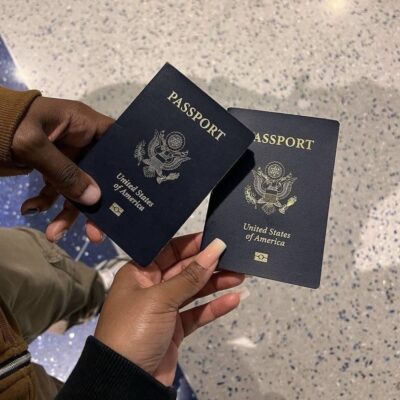Canada remains one of the most popular destinations for international students, offering world-class education, diverse cultural experiences, and a safe, welcoming environment. With over half a million international students choosing Canada each year, studying here opens doors to global opportunities.
If you’re planning to study in Canada in 2024, obtaining a student visa—officially known as a study permit—is an essential step. This guide provides detailed steps, tips, and answers to common questions to help you navigate the process successfully.
Results
#1. Do you have a valid work permit or visa for Canada?
#2. How many years of experience do you have in your field?
#3. Are you willing to relocate to any province in Canada?
#4. Which field are you looking for a job in?
#5. What is your highest level of education?
#6. What is your current employment status?
1. Understand the Canada Study Permit
A study permit is an official document issued by the Government of Canada that enables international students to pursue their education at Designated Learning Institutions (DLIs) across the country. It is a vital requirement for anyone planning to undertake studies in Canada, as it legally permits you to stay in the country for the duration of your academic program. Understanding its purpose, limitations, and conditions is crucial for a smooth and successful migration experience.
What Is a Study Permit?
A study permit is not simply a visa—it is a legal authorization specifically for studying in Canada. While it allows you to remain in Canada to complete your education, it does not grant automatic entry into the country. To enter Canada, you may also require either:
- A visitor visa (Temporary Resident Visa, or TRV): A stamp in your passport that allows you to travel to and enter Canada.
- An Electronic Travel Authorization (eTA): Required for visa-exempt travelers entering Canada by air.
If your study permit application is approved, the Canadian government will automatically issue the appropriate visa (visitor visa or eTA) alongside your permit.
Key Features of the Study Permit
- Validity Period:
- The study permit is typically valid for the length of your academic program plus an additional 90 days.
- The extra 90 days are provided to:
- Allow you to prepare to leave Canada after completing your studies.
- Apply for an extension, another visa, or a Post-Graduation Work Permit (PGWP) if you wish to stay and work in Canada.
- Designated Learning Institutions (DLIs):
- Your study permit is only valid if you are enrolled at a recognized DLI. DLIs are institutions approved by a provincial or territorial government to host international students.
- You must confirm that your institution is a DLI before applying for your permit.
- Conditions of the Study Permit:
- You must make satisfactory progress in your studies and maintain enrollment at your institution.
- Your permit may include restrictions, such as working part-time during academic sessions and full-time during breaks.
Why Is a Study Permit Important?
The study permit serves multiple purposes:
- Legal Authorization: It ensures that you are lawfully residing in Canada for the purpose of education.
- Access to Resources: A valid study permit allows you to:
- Work part-time during your studies (up to 20 hours per week).
- Work full-time during scheduled breaks.
- Access services and support offered to international students, such as health insurance and academic counseling.
- Pathway to Opportunities: A study permit often serves as a stepping stone to further opportunities in Canada, including work permits and permanent residency.
What Happens if Your Study Permit Expires?
If your study permit expires before you complete your program or if you need more time to remain in Canada, you must take action immediately to avoid becoming out of status. Your options include:
- Apply for an Extension: Submit an application to extend your study permit at least 30 days before it expires.
- Change Status: If you finish your studies, you may apply for a Post-Graduation Work Permit (PGWP) or another visa that matches your future goals.
- Restore Your Status: If your permit expires before you apply for an extension, you may apply to restore your status within 90 days of losing it.
Common Mistakes to Avoid
- Ignoring the Expiration Date: Many students forget to monitor their permit’s validity, leading to unnecessary complications. Set reminders well in advance of the expiration date.
- Not Checking DLI Status: Enrolling in a non-DLI institution will render your study permit invalid. Confirm your school’s status on the official government list of DLIs.
- Travel Misunderstandings: Some students assume a study permit doubles as a visa for entry. Always verify whether you need a TRV or eTA.
By thoroughly understanding the purpose, features, and limitations of the Canada study permit, you can ensure that your time in Canada remains legally compliant and stress-free. A well-prepared application and adherence to the conditions of your permit are key to making the most of your academic journey in Canada.
2. Determine Eligibility for a Study Permit
Before applying for a Canadian study permit, it’s essential to confirm that you meet the eligibility criteria. This step ensures that your application is aligned with the requirements set by Immigration, Refugees, and Citizenship Canada (IRCC), improving your chances of success. Below is an expanded explanation of each criterion:
1. Acceptance Letter
To apply for a study permit, you must have a valid letter of acceptance from a Designated Learning Institution (DLI) in Canada.
Submit Your Applications
- What is a DLI?
A DLI is a school or institution authorized by a provincial or territorial government to host international students. Most universities, colleges, and vocational schools in Canada are DLIs, but it’s important to verify the institution’s status before applying. - Details of the Acceptance Letter:
The letter should clearly state:- Your program of study.
- The start and end dates of your program.
- Any conditions for enrollment (e.g., prerequisite courses or language proficiency).
- The institution’s DLI number.
- Conditional Acceptance:
If you receive a conditional acceptance, such as needing to complete a language program before starting your main course, your study permit will typically be issued for the duration of the preparatory program. You may need to apply for an extension later.
2. Proof of Funds
You must demonstrate that you have sufficient financial resources to support yourself and any accompanying family members during your stay in Canada. This includes:
- Tuition Fees: For at least the first year of your program.
- Living Expenses: A minimum of:
- CAD 10,000 per year (outside Quebec) or CAD 11,000 per year (in Quebec).
- An additional CAD 4,000–5,000 per year for each accompanying family member.
- Return Transportation: Funds to cover your return trip to your home country.
Acceptable Proof of Funds:
- Bank statements for the past four months.
- Proof of a student loan from a recognized financial institution.
- Scholarship or grant letters specifying the amount and duration.
- A letter from a sponsor detailing their financial support, along with their bank statements or income proof.
Why It’s Important:
The IRCC uses this requirement to ensure you won’t face financial difficulties during your studies, reducing the risk of dropping out or becoming reliant on public funds.
3. Clean Background
To confirm that you pose no security risk to Canada, you may be required to provide a police clearance certificate from your country of residence or any country where you’ve lived for six months or more in the past 10 years.
- How to Obtain a Police Clearance Certificate:
- Contact local police authorities or the appropriate government agency in your country.
- Some countries allow you to request this document online, while others may require an in-person application.
- What It Proves:
- That you have no criminal record.
- That you have not engaged in activities that could make you inadmissible to Canada, such as organized crime or human rights violations.
Tip: Start this process early, as obtaining a police clearance can take time depending on your country’s requirements.
4. Medical Examination
Depending on your country of residence, you may need to undergo a medical examination to ensure you’re in good health and pose no public health risk to Canada.
- Who Needs a Medical Exam?
- Applicants from countries designated by IRCC as requiring medical examinations.
- Applicants planning to work in healthcare, childcare, or primary/secondary education while in Canada.
- How to Complete the Medical Exam:
- Schedule an appointment with a panel physician approved by IRCC.
- The physician will perform a physical examination, take a medical history, and may conduct additional tests like X-rays or blood work.
- What It Confirms:
- That you don’t have any contagious diseases (e.g., tuberculosis).
- That you’re fit to undertake studies and live in Canada without placing undue strain on the healthcare system.
Tip: Book your medical exam early, as processing results can take several weeks.
5. Intent to Leave Canada
While Canada offers pathways for post-graduation work permits and permanent residency, you must demonstrate that your primary intention is to study and that you plan to leave Canada when your study permit expires.
- How to Prove Intent to Leave:
- Provide a detailed study plan explaining why you chose your program and institution, how it aligns with your career goals, and why returning to your home country is part of your future plans.
- Include ties to your home country, such as:
- Family connections.
- Property ownership.
- Current employment or a job offer awaiting your return.
- Why It’s Required:
The IRCC uses this criterion to ensure applicants aren’t using the study permit as a way to circumvent immigration laws. However, proving intent to leave doesn’t prevent you from applying for permanent residency later if you decide to stay.
Key Points to Remember
- Meeting all eligibility criteria doesn’t guarantee approval, but it significantly strengthens your application.
- If you’re unsure about your eligibility, consider consulting an immigration professional or your Designated Learning Institution’s (DLI) international office for guidance.
- Double-check all requirements specific to your country of residence, as some documents or steps may vary.
By ensuring you meet the above criteria, you set a solid foundation for your study permit application, increasing your chances of a smooth approval process.
3. Gather Required Documents
A well-prepared application begins with assembling all the necessary documents. Ensuring you have complete, accurate, and up-to-date paperwork is critical for a smooth study permit application process. Below is an expanded explanation of the required documents and their significance:
1. Acceptance Letter
An acceptance letter from a Designated Learning Institution (DLI) is the foundation of your application. It confirms that you have been officially admitted to an eligible educational institution in Canada.
Key Details to Verify:
- The letter must include your name, program details, start and end dates, and any conditional requirements (e.g., language prerequisites).
- Ensure that the institution is a recognized DLI. You can check the list of DLIs on the official Canadian immigration website.
Tip: If your acceptance is conditional, such as needing to complete a language course first, be prepared to apply for an extension of your study permit after meeting those conditions.
2. Valid Passport
Your passport is an essential document, as it serves as your primary form of identification during your stay in Canada.
Important Considerations:
- Ensure your passport is valid for the entire duration of your study program, plus any additional time you plan to stay (e.g., the 90 days granted post-completion).
- If your passport expires before your program ends, renew it before applying for the study permit.
Tip: Carry both physical and digital copies of your passport for backup in case of loss or emergencies.
3. Proof of Funds
You must demonstrate that you have sufficient funds to support yourself and any accompanying family members during your stay in Canada.
Minimum Funds Required:
- CAD 10,000 per year (outside Quebec).
- CAD 11,000 per year (in Quebec).
- Additional funds for tuition fees and any dependents accompanying you.
Acceptable Proof of Funds:
- Bank Statements: Showing consistent account activity for the past four months.
- Scholarship Letters: If applicable, include details of the scholarship amount and duration.
- Proof of Sponsorship: If someone else is funding your studies, include a letter of support from your sponsor and their financial documents.
- Student Loans: Official documents from a recognized financial institution.
Tip: Ensure your proof of funds covers tuition, living expenses, and return transportation costs.
4. Passport-Sized Photos
You’ll need to submit passport-sized photos that meet Canadian visa specifications.
Photo Requirements:
- Dimensions: 35mm x 45mm.
- Neutral expression, facing the camera.
- Plain white or light-colored background.
Tip: Many visa application centers and photo studios are familiar with Canadian specifications. Always double-check before submitting.
5. Study Plan
A study plan (sometimes referred to as a Statement of Purpose) is a written document explaining your academic and career goals and why you chose Canada as your study destination.
What to Include:
- Why you selected the program and institution.
- How studying in Canada aligns with your long-term career objectives.
- Your plans after completing your studies (e.g., returning to your home country).
Tip: Be concise, professional, and authentic. Address any gaps in your education or work history to avoid raising questions.
6. Immigration Medical Examination (IME)
Depending on your country of residence, you may need to undergo a medical examination to ensure you’re in good health and pose no public health risk to Canada.
Steps for Completing the IME:
- Schedule an appointment with a panel physician approved by Immigration, Refugees, and Citizenship Canada (IRCC).
- The exam may include a physical assessment, medical history review, and tests like chest X-rays or blood work.
Tip: Schedule your medical exam early, as processing the results can take several weeks. Keep a copy of your receipt as proof.
7. English/French Language Proficiency
While not mandatory for the study permit itself, many Canadian institutions require proof of language proficiency as part of their admission process.
Accepted Tests:
- IELTS (International English Language Testing System).
- TOEFL (Test of English as a Foreign Language).
- TEF (Test d’évaluation de français) for French-speaking institutions.
Tip: Even if your chosen program doesn’t require language proficiency, submitting test scores can strengthen your application by demonstrating your preparedness for academic success.
8. Biometrics
Biometrics are required for most applicants, including fingerprints and a photograph, to verify your identity.
Steps to Submit Biometrics:
- After submitting your application, you’ll receive a Biometric Instruction Letter (BIL).
- Visit an authorized Visa Application Center (VAC) to provide your biometrics.
- Pay the biometric fee (CAD 85 per person).
Tip: Book your biometrics appointment as soon as possible to avoid delays. Processing cannot proceed without your biometric data.
Additional Tips for Document Preparation
- Organize and Label: Keep your documents categorized and labeled for easy access.
- Certified Translations: Any document not in English or French must be accompanied by a certified translation.
- Backup Copies: Keep both digital and hard copies of all documents in case of loss or additional requests.
- Double-Check for Completeness: Incomplete or missing documents can lead to delays or rejection. Use a checklist to ensure nothing is overlooked.
Gathering these documents is a crucial step in your study permit application process. Having everything ready and accurate increases your chances of approval and sets the stage for a smooth transition to studying in Canada.
4. Apply for the Study Permit
Follow these steps to complete your application:
Step 1: Apply Online
Create an account on the Immigration, Refugees, and Citizenship Canada (IRCC) website. Fill out the application form, upload the required documents, and pay the application fee (CAD 150).
Step 2: Submit Biometrics
Once you apply, you’ll receive a Biometric Instruction Letter (BIL). Visit a Visa Application Center (VAC) in your country to provide biometrics.
Step 3: Wait for Processing
Processing times vary by country. You can check estimated times on the IRCC website. Applications are typically processed within 4-12 weeks.
Step 4: Additional Requests (if any)
You may be asked to attend an interview or submit additional documents. Respond promptly to avoid delays.
Step 5: Receive the Decision
If approved, you’ll receive a Port of Entry (POE) Letter of Introduction. If a visitor visa or eTA is required, it will be issued automatically.
5. Travel to Canada
Traveling to Canada as an international student is an exciting milestone. However, proper preparation is essential to ensure a smooth experience at the border and to avoid any complications during your entry process. This stage involves gathering the necessary documents, understanding port of entry procedures, and being prepared to present your information to the Canada Border Services Agency (CBSA).
Essential Documents to Carry
When traveling to Canada, you must have the following documents readily available in your carry-on luggage (not in checked baggage):
- Port of Entry (POE) Letter of Introduction:
- This letter is issued by Immigration, Refugees, and Citizenship Canada (IRCC) upon approval of your study permit application.
- It is not your study permit but serves as proof that you are authorized to receive one at the port of entry.
- Valid Passport:
- Ensure your passport is valid for the entire duration of your stay in Canada, plus any additional time you plan to remain after completing your studies.
- Acceptance Letter:
- Bring the original or a copy of the acceptance letter issued by your Designated Learning Institution (DLI).
- The letter confirms your enrollment in a recognized program and institution.
- Proof of Funds:
- Carry documents that demonstrate your financial ability to support yourself during your studies. Examples include:
- Bank statements.
- Scholarship or sponsorship letters.
- Proof of a student loan.
- Carry documents that demonstrate your financial ability to support yourself during your studies. Examples include:
- Any Other Documents Specified in Your Approval:
- Check your approval letter for additional requirements, which may include:
- Police clearance certificates.
- Proof of medical examination results.
- Copies of tuition payment receipts.
- Check your approval letter for additional requirements, which may include:
Additional Items to Consider
- Travel Documents:
- If you require a visitor visa (Temporary Resident Visa, TRV) or an electronic travel authorization (eTA), ensure they are valid and included with your travel documents.
- Emergency Contact Information:
- Have contact details for your Designated Learning Institution’s international office, as well as your local contacts in Canada.
- COVID-19-Related Requirements (if applicable):
- Be aware of any current travel restrictions, vaccination requirements, or health declarations related to the ongoing COVID-19 situation.
What to Expect at the Port of Entry
Upon arrival in Canada, you will meet with a Canada Border Services Agency (CBSA) officer. This interaction is a crucial step in the process, as the officer will review your documents and issue your study permit.
Steps at the Port of Entry:
- Present Your Documents:
- Hand over your POE Letter of Introduction, passport, and supporting documents as requested by the officer.
- Answer Questions:
- Be prepared to answer questions about:
- The purpose of your visit (e.g., to study).
- Details of your program and institution.
- Your financial capability to support yourself in Canada.
- Your plans after completing your studies.
- Answer truthfully and confidently, as any discrepancies may raise concerns.
- Be prepared to answer questions about:
- Receive Your Study Permit:
- If all goes well, the officer will issue your study permit. This document outlines:
- The conditions of your stay (e.g., whether you’re allowed to work).
- The validity period of your permit.
- If all goes well, the officer will issue your study permit. This document outlines:
Tips for a Smooth Entry
- Organize Your Documents: Keep all required paperwork in a secure and easily accessible folder.
- Arrive Early: Long lines at immigration and customs can cause delays, so allow extra time for processing.
- Stay Calm and Polite: Interact respectfully with CBSA officers, as their role is to ensure compliance with Canadian regulations.
- Verify Details on Your Study Permit: Before leaving the port of entry, double-check the information on your study permit, including the validity dates and any restrictions. If you notice any errors, notify the officer immediately.
Common Issues at the Port of Entry
- Missing Documents:
- Ensure all required documents are in your possession. Missing paperwork can result in delays or denial of entry.
- Discrepancies in Information:
- Consistency between your application details and answers to the officer’s questions is crucial.
- Unclear Intentions:
- Be clear about your intention to study and adhere to the terms of your study permit.
What Happens After Entry
Once your study permit is issued and you’ve cleared customs:
- Settle Into Your Accommodation: Head to your pre-arranged housing and ensure you’re comfortable.
- Contact Your Institution: Notify your Designated Learning Institution that you’ve arrived.
- Open a Bank Account: Set up a Canadian bank account to manage your finances easily.
- Obtain a SIN (Social Insurance Number): If you plan to work while studying, apply for a SIN to ensure legal employment.
Traveling to Canada is an exciting and pivotal step in your journey as an international student. By preparing thoroughly, organizing your documents, and understanding the port of entry procedures, you can ensure a seamless and stress-free arrival experience.
6. Tips for a Successful Application
- Apply Early: Start the process at least 6 months before your program begins.
- Check DLI Status: Ensure your institution is a Designated Learning Institution.
- Be Honest: Provide accurate information and genuine documents.
- Proofread Documents: Errors can lead to delays or rejection.
FAQs on How to get a Canada Student Visa
What is the cost of a Canada study permit?
The application fee is CAD 150. Additionally, biometric fees are CAD 85 per person.
How long does it take to get a study permit?
Processing times vary by country, ranging from 4 to 12 weeks. Check the IRCC website for specific timelines.
Can I work while studying in Canada?
Yes, you can work part-time while studying in Canada on a student visa. You are allowed to work up to 20 hours per week during the academic session and full-time during breaks (such as summer or winter holidays), provided you meet the conditions of your study permit.
Do I need to show proof of financial support for my Canada student visa?
Yes, you must provide proof that you have enough funds to support yourself during your stay in Canada. The required amount will depend on factors such as the length of your stay and whether you have family members accompanying you.
For a single student, it is generally expected that you have at least CAD 10,000 per year, in addition to your tuition fees.
What if I want to switch schools while in Canada on a student visa?
You must inform the Canadian immigration authorities if you change schools. If you transfer to another DLI, ensure that your new institution is recognized by the government, and your study permit remains valid.
What if my study permit application is rejected?
You can reapply after addressing the reasons for rejection. Common issues include insufficient funds, lack of genuine intent to study, or incomplete documentation.
Can I bring my family with me?
Yes, your spouse or common-law partner can apply for an open work permit, and your children can attend school in Canada.
Can I extend my Canada student visa?
Yes, you can apply to extend your study permit if you need more time to complete your studies. You should apply at least 30 days before your current permit expires.
Do I need to renew my study permit?
If your program extends beyond your permit’s validity, you must apply for a renewal at least 30 days before it expires.
What happens after I finish my studies?
You may apply for a Post-Graduation Work Permit (PGWP), allowing you to work in Canada for up to 3 years. This can be a pathway to permanent residency.
Before You Go
Obtaining a Canada study permit in 2024 requires careful preparation, attention to detail, and timely action.
By understanding the requirements, gathering the necessary documents, and following the application process, you can improve your chances of success. Canada offers excellent educational opportunities, and a study permit is your gateway to accessing them.
If you encounter challenges, seek professional advice or consult with your DLI’s international office for support. With determination and the right guidance, you’ll be well on your way to beginning an enriching academic journey in Canada.






I hereby accept my Visa Sponsorship to Canada and I will be grateful to receive the visa on time.
My Account details
Kenneth Ezenwa Otuonye
First Bank of Nigeria PLC
A/c No. 2004443852
Email [email protected]
Phone. +2348036694893
Good morning sir I humble application thank you for choosing me as one of the people that will traveling to Canada I think the management
I hereby apply for the special grant by the Government for newly married couples in Canada and I will be most grateful if my application is favourably considered.
kenneth otuonye
November 25, 2024 at 4:24 pm
Reply
I hereby accept my Visa Sponsorship to Canada and I will be grateful to receive the visa on time.
I hereby apply for the special grant by the government for newly married couples in Canada I will be most grateful if my application is favourably consider thanks I’m your faithful
Apply fast for job and live
Please
European visa
very good
Good morning sir I humble application thank you for choosing me as one of the people that will traveling to Canada I think the management
I m ready to marriage in work a welder and fabrication work I am en interested to work in Canada or Australia or Luxembourg or Venezuela
I’m interested from Saudi Arabia country dear
i am driver and building line work carpenter